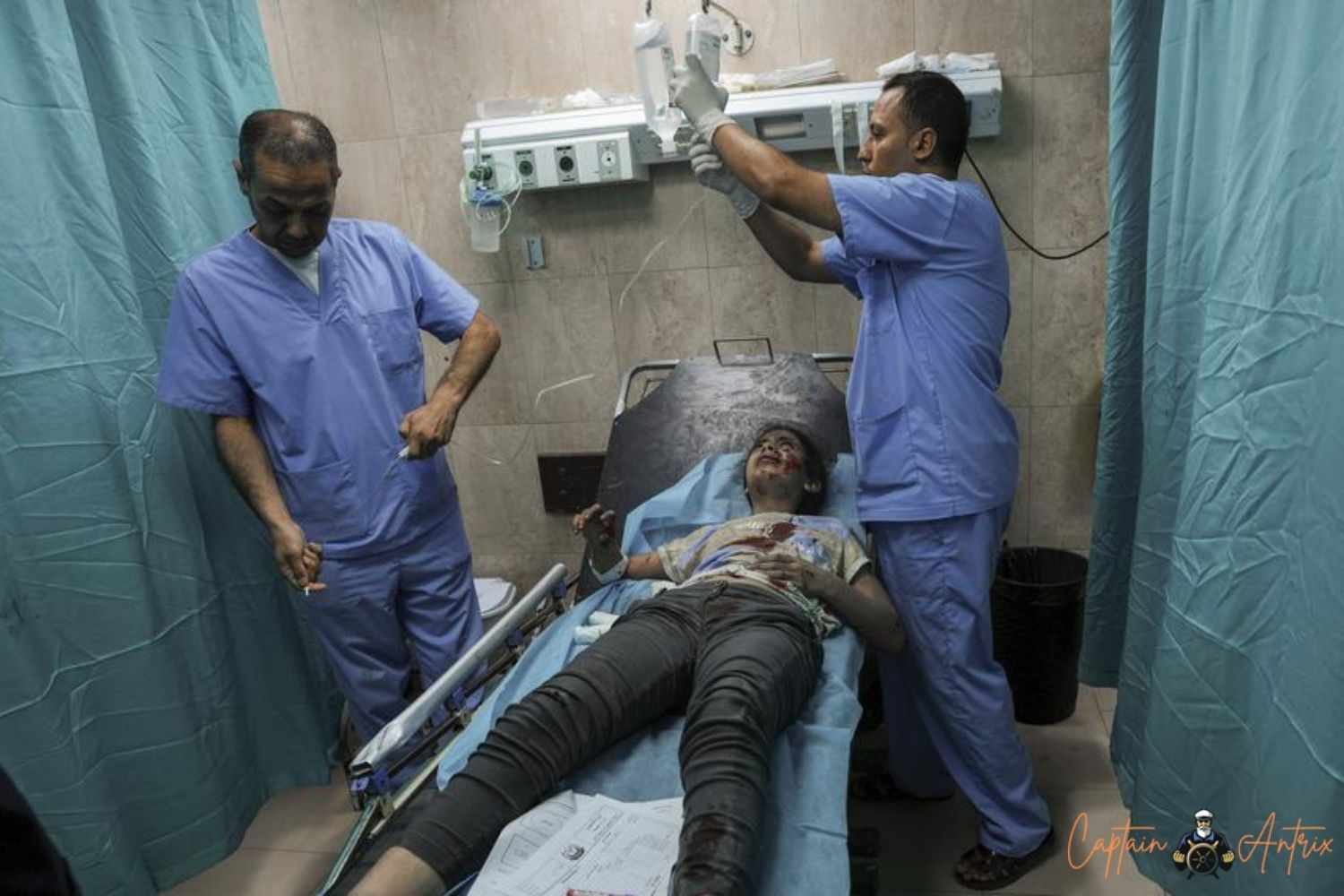
In recent developments, a critical humanitarian situation is unfolding in Gaza, with healthcare professionals warning of a looming catastrophe. Thousands of lives hang in the balance as hospitals in the region teeter on the brink of running out of essential supplies, including fuel, while Palestinians in the besieged coastal enclave face the dire challenge of accessing basic necessities like food and clean water. This crisis has been intensified by the impending threat of an Israeli ground offensive, triggered by a deadly attack orchestrated by Hamas.
In response, Israeli forces, with support from an expanding deployment of U.S. warships in the area, have strategically positioned themselves along Gaza's border, preparing for what they characterize as a comprehensive campaign to dismantle the militant group. A week of relentless airstrikes has left entire neighborhoods in ruins but has not succeeded in curtailing the rocket fire from militants into Israel.
Startling figures from the Gaza Health Ministry indicate that 2,670 Palestinians have lost their lives, and 9,600 have been wounded since the conflict began, surpassing the casualties of the 2014 Gaza war. On the other side of the conflict, more than 1,400 Israelis, primarily civilians, have tragically perished as a result of Hamas' Oct. 7 assault, marking one of the deadliest wars for Israel since the 1973 conflict with Egypt and Syria.
In response to this escalating crisis, the United States is actively engaged in diplomatic efforts. Secretary of State Antony Blinken is set to return to Israel after a multi-country tour through Arab nations, with the primary goal of preventing a broader regional conflict. Additionally, there is contemplation about President Joe Biden making a visit to Israel to address the crisis, although plans remain unconfirmed.
Simultaneously, along the Israel-Lebanon border, violent confrontations have escalated, with Hezbollah militants launching rockets and Israel responding with airstrikes and shelling. The situation remains extremely volatile, with casualties reported on both sides.
Moreover, the healthcare infrastructure within the Gaza Strip is on the verge of total collapse, as hospitals are expected to exhaust their generator fuel supplies within a matter of days. This imminent threat poses a grave danger to thousands of patients, including vulnerable children and those in critical care. International humanitarian aid is urgently required to address this dire situation.

Gaza was already grappling with a severe humanitarian crisis due to a shortage of water and medical supplies, which was further exacerbated by the Israeli siege. The current crisis is pushing the region to unprecedented levels of catastrophe, as Philippe Lazzarini, the head of the U.N. agency for Palestinian refugees, warns of an unfolding disaster.
Efforts to restore basic services, particularly the water supply, are underway, but challenges persist. In response, Israel has issued an order for a significant portion of the population to relocate south, as they prepare for a major campaign against Hamas in the north, where extensive networks of tunnels, bunkers, and rocket launchers are believed to be located.
In the midst of this crisis, Hamas is encouraging people to remain in their homes, while Israel is working to facilitate evacuations. Nevertheless, over 600,000 people have evacuated the Gaza City area, and approximately 500,000 individuals, nearly a quarter of Gaza's population, have sought refuge in United Nations schools and other facilities, where water supplies are running dangerously low.
The United States is actively working to broker a deal that would reopen Egypt's Rafah crossing with Gaza, enabling the safe departure of American citizens and other foreigners and allowing the delivery of urgently needed humanitarian aid, which is currently stockpiled on the Egyptian side. However, the Rafah crossing remains closed, prolonging the precarious situation.
In parallel, Hamas persists in launching rocket attacks on Israel, prompting more extensive evacuations, particularly from the southern Israeli city of Sderot, which has frequently been the target of such attacks. The conflict's impact on the civilian population, particularly children, remains a source of deep concern.
As the crisis in Gaza deepens, the imperative for urgent medical and humanitarian aid becomes increasingly evident. The international community must respond swiftly to alleviate the suffering of the region's people and work collectively towards a peaceful resolution to this devastating conflict.
Tags:
Global News
